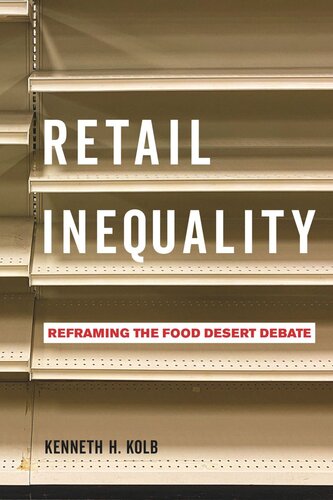

Most ebook files are in PDF format, so you can easily read them using various software such as Foxit Reader or directly on the Google Chrome browser.
Some ebook files are released by publishers in other formats such as .awz, .mobi, .epub, .fb2, etc. You may need to install specific software to read these formats on mobile/PC, such as Calibre.
Please read the tutorial at this link: https://ebookbell.com/faq
We offer FREE conversion to the popular formats you request; however, this may take some time. Therefore, right after payment, please email us, and we will try to provide the service as quickly as possible.
For some exceptional file formats or broken links (if any), please refrain from opening any disputes. Instead, email us first, and we will try to assist within a maximum of 6 hours.
EbookBell Team

4.8
44 reviewsRetail Inequality examines the failure of recent efforts to improve Americans' diets by improving access to healthy food. Based on exhaustive research in Greenville, SC, Kenneth H. Kolb documents the struggles of two Black neighborhoods. Outsiders ignored their complaints about the unsavory retail options on their side of town until the emergence of the well-intentioned but flawed "food desert" concept. Soon after, new allies arrived to help, believing grocery stores and healthier options were the key to better health. Their efforts, however, did not change locals' food consumption practices. Retail Inequality explains why and outlines the history of deindustrialization, urban public policy, and racism that are the cause of unequal access to food today. Kolb identifies retail inequality as the crucial concept to understanding today’s debates over gentrification and community development. As this book makes clear, the battle over food deserts was never about food––it was about equality.